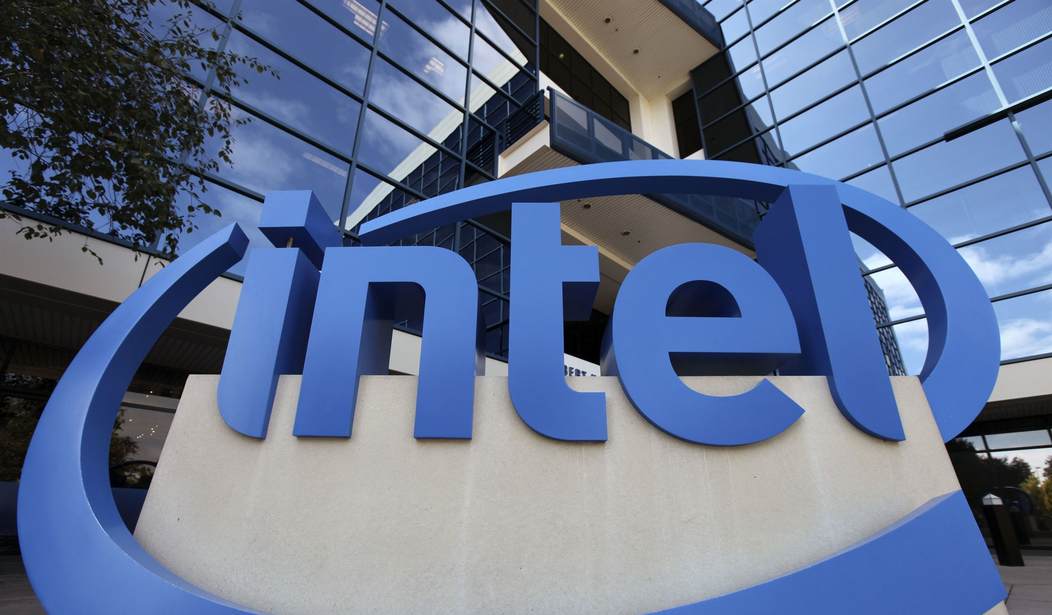Checking CNBC quickly this afternoon I got a little confirmation on a topic I hit yesterday – about American businesses de-risking and decoupling their manufacturing and supply dependencies from China and/or generally unstable, unfriendly areas. Yesterday, Raytheon’s CEO was saying it’s going to be just too much trouble, while today, Intel’s stock is taking a beating because they’re doing exactly that.
In fact, during the investor briefing, Intel’s CFO David Zinsner, outlined plans not only to continue making their own chips, but building plants to manufacture third party chips going forward. Literally to become a “chip manufacturing company.”
Pretty radical thinking there.
Intel stock dropped 6% on Wednesday after the company gave investors an update on the company’s turnaround plan to become a chip manufacturing company competing with Taiwan Semiconductor Manufacturing Company.
They are building multiple brand new facilities – called “foundries” – in “friendly” countries which also enables them to qualify for CHIPS Act dollars.
…“We have long argued that if Intel is truly going to pursue an external foundry model — which at this point would be hard to backpedal from given its pending acceptance of significant amounts of Chips Act money — it needs to cleave the manufacturing assets from the product businesses,” Arcuri said.
“Essentially, we argue Intel likely splits into a foundry business and a fabless product business, and the segment P&L is a big first step.” Arcuri said. “Such a separation is necessary because there is not a single potentially significant customer that tells us they would make a big commitment to Intel foundry as long as it would be competing with Intel for the best wafers, highest yielding lots, etc.”
Intel uses its own foundries — or fabs, those high-tech plants that create the silicon wafers onto which transistors are etched to make microchips — unlike other chip makers that are “fabless” like Nvidia Corp. NVDA, -1.74%, Advanced Micro Devices Inc. AMD, -5.73%, and Apple Inc. AAPL, -0.57%. Those companies use third-party fabs like Taiwan Semiconductor Manufacturing Co. TSM, -2.25% for their chips.
Intel executives are looking ahead to poaching business from Taiwanese chip manufacturers once they split off the business and product lines.
…If Intel catches up with TSMC, then it can compete for contracts to build high-performance chips from companies like Apple, Nvidia, and Qualcomm, which don’t run their own manufacturing and currently often opt for TSMC or Samsung manufacturing. Intel said it expected to announce a key customer for its foundry business later this year.
“The manufacturing group will now face the same market dynamics as their foundry counterparts,” Zinsner told analysts. “They’ll need to compete for volume through performance and price as internal customers will have the option to leverage third party foundries and to attract external foundry volume, they must do the same.”
The CHIPS Act money is $52B set aside for to encourage corporations and smaller outfits to move their manufacturing out of the currently very unstable Asian-Pacific area.
…Chips go into everything, including automobiles, appliances, aircraft, electric routers, medical devices and U.S. military equipment. So the idea that most of these vital components are being made elsewhere, and are concentrated in just one part of the world, represents geopolitical and national security risk to the U.S., according to Chatterji.
The CHIPs Act is designed to offset those risks. The appropriation forks out $39 billion in manufacturing incentives plus another $13.2 billion for R&D workforce development. “You can think about those as two pots of money that are connected to the same goal, but with different folks,” Chatterji says.
Intel’s foundry in Germany, while taking advantage of that program, is also being courted by the Scholz government. The Intel deal is historic in scope, while securing a vitally needed industry closer to home.
Chancellor Olaf Scholz’s ruling coalition established the €178-billion fund in July last year to pay for Germany’s transformation to a more sustainable economy and for climate protection measures. Financed partly by income from emissions trading and carbon pricing, money from the fund was also allocated to ease the burden on consumers and companies from high energy prices.
Spokespeople for the Economy Ministry in Berlin did not immediately respond to a request for comment.
Intel plans to invest about €30 billion in the semiconductor site in the former communist east, which Scholz said Monday represents the single largest foreign direct investment in German history.
Intel is also in the process of building a facility in Israel in concert with the Israeli government. They are spreading far and wide in an attempt to have their assets clear of East Asia, as well as positioning themselves to be the alternative source for those chip companies whose third-party fabs are still in the region.
It’s also a nice smack at the BDS crowd.
US semiconductor giant Intel Corp. has inked an agreement in principle with the Israeli government to build a chip manufacturing plant in Kiryat Gat at an investment of $25 billion. Read more here: https://t.co/tnuzN91gHb
— Christians United for Israel (@CUFI) June 20, 2023
Speaking of moving from Asia, there’s also have a new facility that’s been under construction in Ohio, so it’s not all international largess with nothing coming home to the States.
This is all good, good news.
The more we can secure logistics and supply chains, the better off we are. Baby steps, maybe, but steps none the less.
.







Join the conversation as a VIP Member